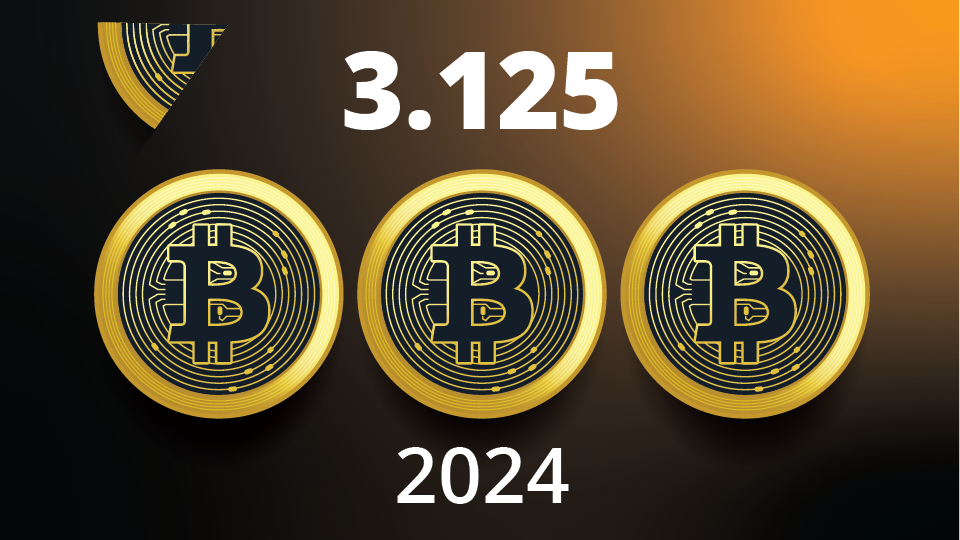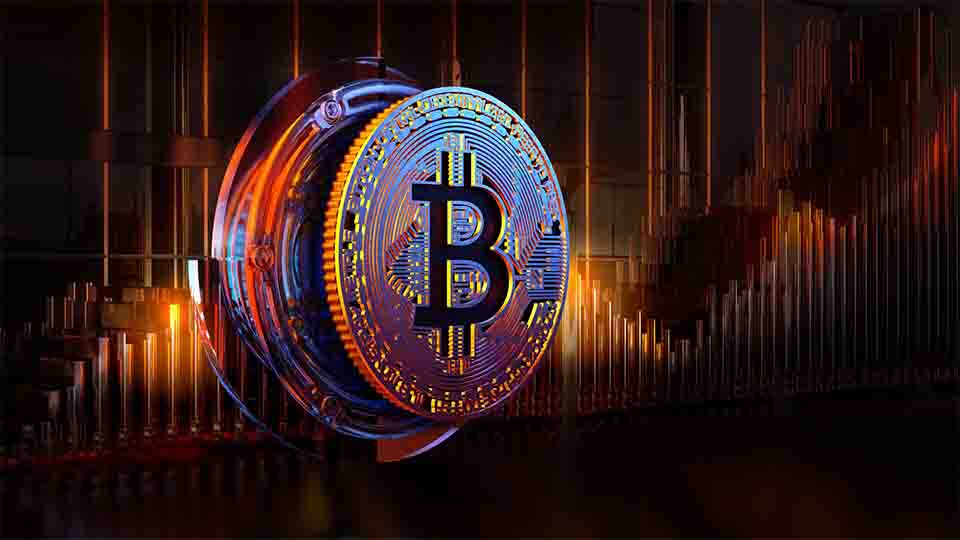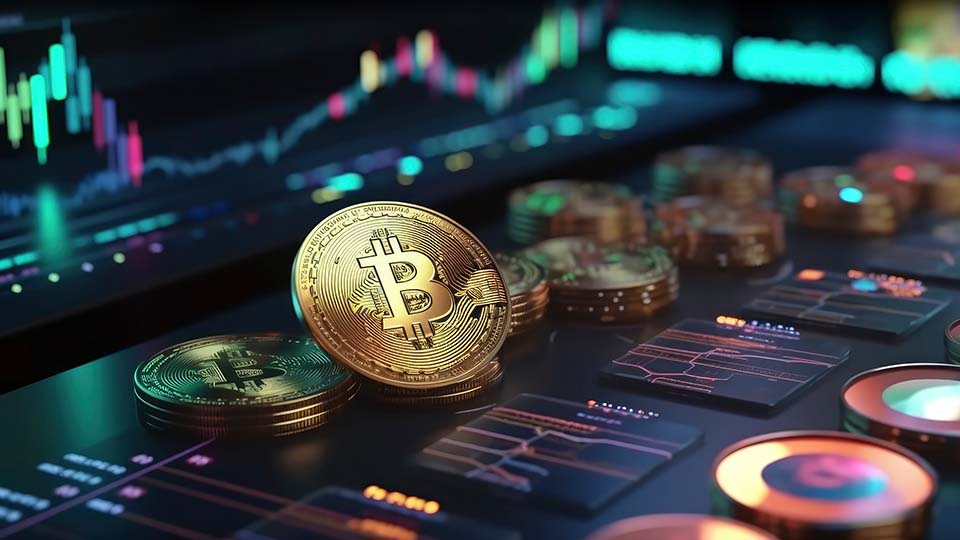Cryptocurrency Q&A: A Boom or Bust?
April 01, 2021
Read Time 5 MIN
Cryptocurrency continues to make headlines with bitcoin and ethereum leading the way. Reaching record highs recently, bitcoin, in particular, has attracted the attention of the investment community. Will cryptocurrency maintain the same level of interest that was seen towards the end of 2020 and now into 2021? In this in-depth Q&A, Gabor Gurbacs, Director of Digital Assets Strategy, will discuss the digital asset landscape and its future.
Q: How do you see bitcoin and other digital assets impacting financial services at the institutional level?
A: Digital assets have primarily been a retail play. This was a situation where Main Street beat Wall Street, and now Wall Street is playing catch up. There are two ways I see bitcoin in institutional spaces. First, institutions are looking to add bitcoin to their portfolios. Our Investment Case for Bitcoin explores how a 1% - 3% allocation to bitcoin may benefit institutional portfolios. Sure enough, we found that bitcoin has a low correlation to traditional asset classes. It has outperformed most assets over the past 10 years and actually increased and improved the risk-reward profile of institutional portfolios. Institutional portfolios and publicly listed companies have started adding bitcoin to their asset mix like they do with gold. We have seen MicroStrategy, the Marathon Patent Group and some other decently sized institutions on the public side adding bitcoin to their portfolios. We hear from family offices, endowments and institutions like Harvard, Yale, and others that they are adding bitcoin to their portfolios, so that's obviously one clear trend.
The second way I think bitcoin has the potential to improve the mainstream financial infrastructure is just the pathways of the transactions with 42 million clients. There are some functions that bitcoin has introduced that may help prove that financial infrastructure. It is providing faster settlements, an alternative railway for trading, and new ways to interact with stuff like capital markets and lending, but in sort of a parallel universe. There are new ways to lend out bitcoin that do not exist in the banking space. These are all improvements, and I think the key to remember here is that all these things are additive to the financial system. Right now, I believe finance in Wall Street is just benefiting from what bitcoin brings to the market. We're going to see a number of IPOs coming to the market this year. This will potentially help more institutions participate in the digital asset space.
Q: Do you think this is specific to bitcoin, or do you see interest from institutions in other cryptocurrencies as well?
A: Most of the institutions only care about bitcoin, because it's a mature asset with 70% of the market cap. Bitcoin has a finite supply, and that makes sense as an alternative to gold, in my view. There's a subgroup of people who are interested in decentralized finance and flag the technology behind what may help to take Wall Street to the next level. There are lots of conversations around stablecoins and how money market instruments will be reformed, and we should probably keep an eye on them. Stablecoin market capitalization is around $34 billion now. Going from $0 to $34 billion in five years is pretty big. In my opinion, 95% of the crypto space does not make any sense. There are competing protocols, and it's mostly a zero-sum game with the exception of, I think, bitcoin, some stablecoins and maybe Ethereum, but again, institutions are focusing on bitcoin.
What I would add to this is there is also slow development towards tokens 2.0—tokens that represent real things as opposed to some random protocol or decentralized networks. That’s a space to watch, to see how tokens that are representing things of real value will change capital markets.
Q: Is there an inverse correlation to USD with bitcoin?
A: Our CEO Jan van Eck usually says that bitcoin right now is 2/3 a tech stock and 1/3 digital gold. With respect to inverse correlation, I would say part of the time, it's like stocks, and part of the time, it's gold. I don't think that there's a specific inverse correlation. We did a study on bitcoin correlation to traditional asset classes. Correlations have increased pretty significantly in 2020 from 0.1 to 0.3 to major asset classes, including gold, too. I don't think a discernible dollar correlation is worthwhile to note.
Q: Is there a threat from the number of counterfeit bitcoin and the fact that many inactive keys are permanently lost?
A: There are risks to this space, including unintentional coding errors, how the system will be maintained, the potential for double-spends or state-coordinated attacks. I think that needs to be acknowledged. Recently, there was litigation around some of the earliest lost coins potentially coming to market, and the nation-state of Bulgaria owning $4 billion worth of bitcoin. If some of these older confiscated coins come to market, I think there is real potential that they can depress the price from an economic perspective, beyond the additional technical risks. I think we should, in general, keep those things in mind.
On the technical side, the first episode of our Trends with Benefits No Jargon Bitcoin podcast series examines some of these technical considerations that investors actually should think about, like the technical upgrades that are actually important to bitcoin. Most people don't know what Taproot means, but it's a privacy upgrade that might change bitcoin forever.
Q: What is your outlook for bitcoin?
A: There are three areas I’m monitoring. One, I think we're going to see similar successes in the U.S. Two, there are a lot of mergers and acquisitions and purchases in the crypto space. I think we're going to see many of them in 2021 and 2022. Some of the numbers will shock you, like Coinbase's IPO, which is expected and may be in the multi $10 billion range. A lot of companies will be coming to market and be accessible to the public, and they're going to create a new group of very young billionaires and influential people that you should keep in mind. Three, as I mentioned, I’m watching what I call tokens and coins 2.0. I think there's going to be a number of really interesting coins coming to market that represent real things, so I will be watching those.
Related Topics
Related Insights
DISCLOSURES
This is not an offer to buy or sell, or a recommendation to buy or sell any of the cryptocurrencies mentioned herein. The information presented does not involve the rendering of personalized investment, financial, legal, or tax advice. Certain statements contained herein may constitute projections, forecasts and other forward looking statements, which do not reflect actual results, are valid as of the date of this communication and subject to change without notice. Information provided by third party sources are believed to be reliable and have not been independently verified for accuracy or completeness and cannot be guaranteed. The information herein represents the opinion of the author(s), but not necessarily those of VanEck.
All investing is subject to risk, including the possible loss of the money you invest. As with any investment strategy, there is no guarantee that investment objectives will be met and investors may lose money. Diversification does not ensure a profit or protect against a loss in a declining market. Past performance is no guarantee of future results.
Related Funds
DISCLOSURES
This is not an offer to buy or sell, or a recommendation to buy or sell any of the cryptocurrencies mentioned herein. The information presented does not involve the rendering of personalized investment, financial, legal, or tax advice. Certain statements contained herein may constitute projections, forecasts and other forward looking statements, which do not reflect actual results, are valid as of the date of this communication and subject to change without notice. Information provided by third party sources are believed to be reliable and have not been independently verified for accuracy or completeness and cannot be guaranteed. The information herein represents the opinion of the author(s), but not necessarily those of VanEck.
All investing is subject to risk, including the possible loss of the money you invest. As with any investment strategy, there is no guarantee that investment objectives will be met and investors may lose money. Diversification does not ensure a profit or protect against a loss in a declining market. Past performance is no guarantee of future results.




